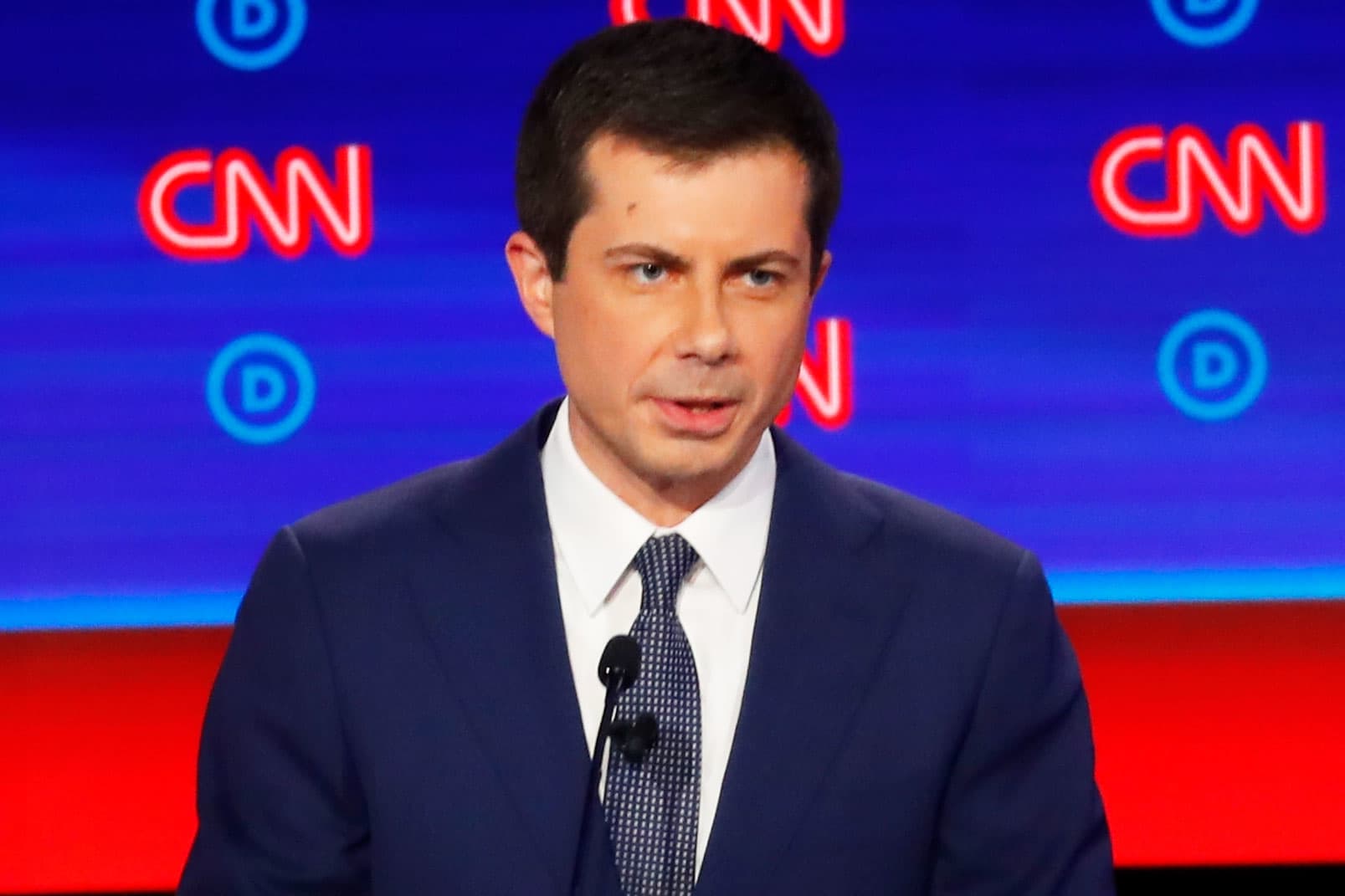
South Bend Mayor Pete Buttigieg participates in the first of two Democratic presidential primary debates hosted by CNN Tuesday, July 30, 2019, at the Fox Theatre in Detroit.
Paul Sancya | AP
Gun control emerged as a big issue during the Democratic presidential debate Tuesday in Detroit, but then it grew into an argument about money in politics.
The National Rifle Association, candidates argued, was emblematic of how large, well-funded lobbying groups and corporations exert too much influence on elections.
Sen. Bernie Sanders, who, along with Sen. Elizabeth Warren, was the top-polling candidate on the stage, touted his poor ratings from the NRA as proof of his ability to effect major change.
"Nobody up here is going to tell you that we have a magical solution to the crisis," Sanders said. "I have a 'D-' voting record from the NRA. And as president, I suspect it will be an 'F' record."
Gov. Steve Bullock, who hadn't qualified for the first debate in June, railed against lobbying efforts in his home state of Montana and praised his government's ability to limit corporate spending.
"You can make changes, even in Montana with a two-thirds Republican legislature," Bullock said. "Even we stopped the Koch brothers from spending at that time. If we can kick the Koch brothers out of Montana, we can do it in DC, we can do it everywhere."
South Bend, Indiana, Mayor Pete Buttigieg, who noted he was a member of the first "school shooting generation," went further, proposing structural changes to political lobbying.
"Still the conversation that we've been having for the last 20 years. Of course we need to get money out of politics," Buttgieg said. "Does anyone really think we're going to overtake Citizens United without constitutional action?"
Buttigieg was a high school student when the Columbine massacre occurred in 1999.
The debate came in the wake of the deadly shooting in Gilroy, California, on Sunday night that left three dead and 12 injured.
Marianne Williamson lashed out not only against the NRA but also at candidates who have taken donations from a variety of corporations.
"For politicians, including my fellow candidates who themselves have taken tens of thousands and in some cases, hundreds of thousands of dollars from these same corporate donors, to think that they now have the moral authority to say 'we're going to take them on,' I don't think the Democratic Party should be surprised that so many Americans believe 'yada yada yada,'" she said.
No comments:
Post a Comment